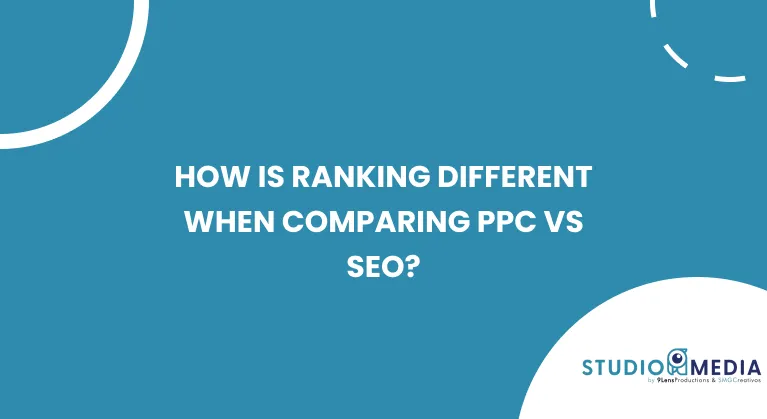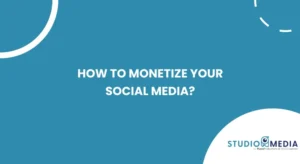In the competitive world of digital marketing, Pay-Per-Click (PPC) and Search Engine Optimization (SEO) are two of the most powerful strategies to achieve visibility on search engine results pages (SERPs). Although both aim to place a brand at the top of search results, they achieve this in very different ways. Understanding these differences is crucial to determining which strategy is best suited for your business, or whether a combination of both is the optimal choice.
PPC is based on paying to appear at the top of search results, while SEO focuses on optimizing a website so that search engines consider it relevant and rank it naturally. In this article, we will explore in depth how these two methods work, their costs, key metrics, and how they can be integrated to maximize your results.
How Ranking Works in PPC: Paying for Immediate Visibility
Ranking in PPC is determined through a real-time auction process, where advertisers bid on keywords relevant to their products or services. For example, Google Ads uses a system that combines the bid amount with the Quality Score of the ads, which evaluates relevance and the user experience on the landing page.
One of the main advantages of PPC is immediacy. As soon as you set up and fund your campaign, your ads can start appearing at the top of search results, providing you with almost instant traffic and visibility. However, this traffic comes with a direct cost: every click on your ad represents an expense that varies depending on the competitiveness of the keyword.
Another characteristic of PPC is the control it offers. You can adjust your campaigns in real-time, modify budgets, target specific audiences, and optimize ads based on performance. But it’s important to remember that once the budget is exhausted, the ads disappear, which immediately stops the flow of traffic.
SEO: The Art of Building Long-Term Organic Visibility
Unlike PPC, SEO is not about paying for immediate visibility but earning it by creating relevant content, technical optimization of your site, and building authority over time. Organic ranking in SEO is based on a complex algorithm that evaluates multiple factors, such as content quality, site structure, load speed, and the quantity and quality of incoming links.
The SEO process is slower but offers sustainable benefits. Once your site begins to rank well for certain keywords, it can maintain that position without the need for continuous payments. Additionally, users tend to trust organic results more as they perceive them as more impartial and relevant.
SEO requires a constant and strategic approach, as search engine algorithms are continuously evolving. Investing in SEO is, therefore, a long-term strategy that can generate sustainable results and improve your brand’s visibility continuously.
Cost Comparison: Ongoing Investment vs. Sustained Effort
One of the most significant differences between PPC and SEO is how they impact your marketing budget. In PPC, the costs are direct and ongoing: you pay every time someone clicks on your ad. These costs can vary greatly depending on the industry, competition, and selected keywords. For example, in highly competitive sectors, the cost per click (CPC) can be quite high, meaning that maintaining an effective PPC campaign may require significant and continuous investment.
On the other hand, SEO does not require direct payment for each visitor but involves a substantial initial investment in technical optimization, quality content creation, and link building. Although the initial costs can be high, once good ranking is achieved, maintaining it is more economical than continuing to pay for clicks in a PPC campaign. However, it’s important to remember that SEO is not “free” as it requires time, effort, and often the hiring of professionals to manage and improve site performance.
Control and Sustainability: What You Need to Know When Choosing Between PPC and SEO
The decision between PPC and SEO also depends on the level of control and sustainability you desire in your marketing campaigns. PPC offers precise control over various aspects of the campaign, such as keywords, audiences, ad placements, and timings. This control allows for quick adjustments and immediate responses to market changes or consumer behavior.
However, sustainability is an area where SEO clearly has an advantage. Once your site is established in organic results, it can continue attracting traffic without the need for continuous investment. Additionally, the organic visibility built through SEO can strengthen your brand’s credibility over the long term, which can translate into higher engagement and conversion rates.
In summary, PPC is ideal for achieving quick and controlled results, while SEO is a more sustainable and long-term strategy that strengthens your brand’s organic presence on search engines.
The Role of Quality and Relevance: Key Factors in PPC and SEO
In PPC, quality and relevance are evaluated through the Quality Score, an indicator that Google uses to determine the position and cost of ads. An ad with a high Quality Score will be shown in higher positions at a lower cost, even if the bid is not the highest. This score depends on the relevance of the keyword to the ad and the experience provided by the landing page.
In SEO, quality and relevance are also crucial but are measured differently. Search engines value content that clearly answers user queries, is original, and provides significant value. Content structure, proper keyword use, and the quality of inbound links are factors that affect organic ranking. In both cases, providing high-quality and relevant content is key to improving visibility and attracting the target audience.
Key Metrics: How to Measure Success in PPC and SEO
Measuring success in PPC and SEO involves tracking key metrics that reflect the performance and return on investment (ROI) of each strategy. In PPC, the main metrics include cost per click (CPC), click-through rate (CTR), cost per acquisition (CPA), and return on ad spend (ROAS). These metrics allow you to evaluate the efficiency of your ads and make adjustments to optimize performance.
In SEO, the key metrics are different. Organic traffic, conversion rate, time on site, bounce rate, and search result positions are essential indicators of success. Additionally, backlink metrics, such as the quantity and quality of inbound links, are crucial for understanding how your site is perceived in terms of authority and relevance.
Both strategies require constant monitoring and adjustments based on these metrics to ensure they are delivering the desired results.
Impact on User Perception: Trust in Paid vs. Organic Results
User perception is a critical factor that differentiates PPC and SEO. Paid results, although visible and positioned at the top, are clearly marked as “ads,” which can generate skepticism among some users. These users may prefer to click on organic results, which they perceive as more trustworthy and less intrusive.
On the other hand, organic results earn their position based on relevance and authority as perceived by search engines, generating greater trust among users. The credibility of organic results is one reason why many brands invest in SEO for the long term. However, when PPC is well-managed and targeted at the right audience, it can overcome this barrier and offer a strong return on investment.
Combined Strategies: How to Integrate PPC and SEO to Maximize Results
An effective digital marketing strategy often doesn’t choose between PPC and SEO but integrates them to leverage the best of both worlds. By combining PPC and SEO, you can maximize visibility on search engines, cover more stages of the sales funnel, and improve overall performance.
For example, a PPC campaign can drive immediate traffic and attract users to SEO-optimized content, increasing the chances of conversion. Meanwhile, PPC data, such as the most effective keywords, can inform and improve your SEO strategy. Additionally, by using both methods, you can dominate both paid and organic results, increasing your brand’s credibility and capturing a larger market share.
The Best Strategy for Your Business
The choice between PPC and SEO depends on your business goals, budget, and the time you’re willing to invest to see results. PPC is ideal for quick wins, keyword testing, and controlling spending, while SEO is a long-term investment that can generate consistent traffic and strengthen your brand’s authority.
A combination of both strategies can offer the best of both worlds, ensuring immediate visibility while building a sustainable presence over time. The most important thing is to continuously monitor performance, adjust strategies as needed, and maintain a user-focused approach to maximize the success of your digital marketing campaigns.







